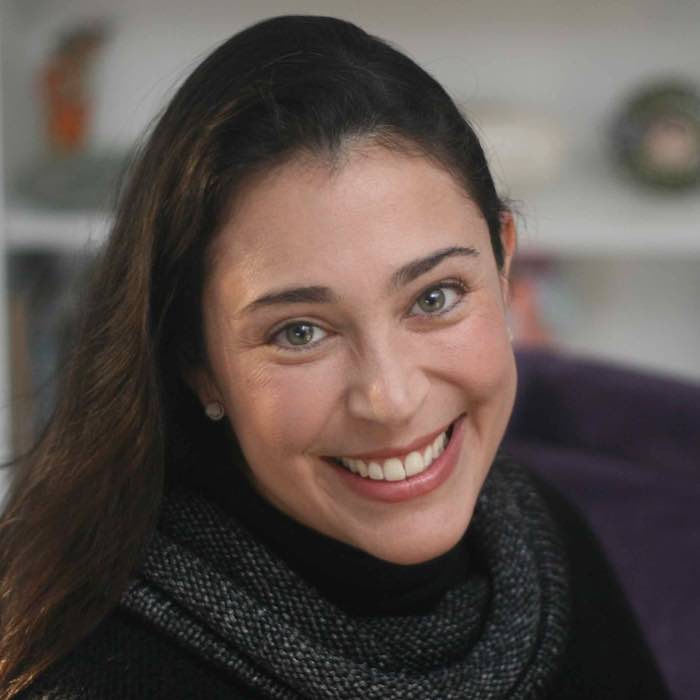Friday, November 18
9:00 AM – 12:00 PM
Cost per person: $179.
In-person in Boston, MA or remote via Zoom.
By advance registration only.
Add $30 fee if you are not attending the conference.
1.
9:00 AM - 10:00 AM ET: PART I - The Brain Science of Anxiety, Emotional Regulation, and Mental Health: Benefits of School-Based Mindfulness
In Part I of this workshop, Dr. Gabrieli will talk about evidence of rising mental health problems among children and adolescents as seen in rates of anxiety, depression, and suicide. He will talk about evidence that school-based training in mindfulness can decrease feelings of stress, emotional regulation, and negative affect (feelings) and increase cognitive ability, namely the ability to maintain focus. Finally, he will talk about how changes in brain function are associated with mindfulness training.
John D.E. Gabrieli, PhD, Director, MIT Integrated Learning Initiative; Professor of Brain and Cognitive Sciences, Massachusetts Institute of Technology; Co-Author, “Brain Function and Clinical Characterization in the Boston Adolescent Neuroimaging of Depression and Anxiety Study” (2020, Neuroimage) and “Mindfulness Training Preserves Sustained Attention and Resting State Anticorrelation Between Default-Mode Network and Dorsolateral Prefrontal Cortex: A Randomized Controlled Trial” (2020, Human Brain Mapping)
10:05 AM - 12:00 PM ET: PART II - Flooded Brains: Helping Students With Anxiety and Emotional Regulation in the Classroom
Based on her book Flooded: A Brain-Based Guide to Help Children Regulate Emotions, Allison Edward will give you the tools they need to help students manage emotions during Part II of this workshop. Using brain research and practical interventions, you will learn to set up spaces to reset the brain, de-escalate high-conflict situations and redirect students with emotions in mind. Along the way, you will learn how to manage their own emotions when triggered. This is a must-attend for anyone who works with children.
Allison J. Edwards, LLC, Licensed Professional Counselor; National Certified Counselor; Former School Teacher and School Counselor; Registered Play Therapist; Owner, All The Feels Company; Author, Flooded: A Brain-Based Guide to Help Children Regulate Emotions (2021), 15-Minute Counseling Techniques That Work (2020), and Why Smart Kids Worry: And What Parents Can Do to Help (2013)
2. Learning in the Fast Lane: Creating Active, Accelerated Learning for Student Success - Live in Boston ONLY
You will leave this fast-paced workshop with next-day implemental instructional frameworks and techniques that will move ALL students toward academic success. Designed for all grades and content, this workshop will recharge your toolkit to get learners intellectually moving! Suzy Rollins will provide you with strategies that truly motivate learners to reach higher and can help address gaps in the context of new learning, as well as a better understanding of the role prior knowledge plays in learning – and how acceleration can spark new learning.
Suzy Pepper Rollins, MA, Education Consultant, Fast Lane Learning, LLC; Founder, Math in the Fast Lane; Former Remedial Education Coordinator; Expert in remedial education and learning acceleration; Author, Teaching Vulnerable Learners: Strategies for Students Who Are Bored, Distracted, Discouraged, or Likely to Drop Out (2020), Teaching in the Fast Lane: How to Create Active Learning Experiences (2017), and Learning in the Fast Lane: 8 Ways to Put ALL Students on the Road to Academic Success (2014)
3. Teaching With Hope: How to Navigate Burnout With Evidence-Based Strategies for Resilience and Wellbeing
- Live in Boston ONLY
In a recent study, over 5,000 educators chose the following top five words to describe their current emotional experience: anxious, fearful, worried, overwhelmed, and sad. Teachers everywhere are experiencing burnout and demoralization. Yet when they practice a range of emotional regulation strategies, they report improvements in personal well-being and their ability to provide emotional support in their classrooms. Using research-based psychological principles, this workshop will explore and experience simple ways to address teachers’ social and emotional wellbeing, including strategies for understanding and navigating our emotions, ways to savor the good in our lives, and how to clarify our sense of purpose at work while drawing on our strengths.
Amy L. Eva, PhD, Associate Education Director, Greater Good Science Center, University of California, Berkeley; Key Developer on UC Berkeley’s Greater Good in Education website; Author, Surviving Teacher Burnout: A Weekly Guide to Build Resilience, Deal With Emotional Exhaustion, and Stay Inspired in the Classroom (2022); Co-Author, “The Mindful Teacher: Translating Research Into Daily Wellbeing” (2018, The Clearing House Journal)
4. Motivating Minds: Creating Engaging and Playful Experiences to Boost Learning
- Live in Boston ONLY
9:00 AM - 10:30 AM ET: PART I - Engaging Today's Students With and Without Technology
David Berliner once said that engagement is the something for which there is no substitute. His assertion that engagement is a primary component in how learning works is supported by an abundance of research and evidence that has now clarified what engagement might look like to amplify student growth and achievement. In this Part i of the workshop, you will unpack the latest research on student engagement and the very interesting relationship between engagement and learning. You will walk away with ideas and strategies for engaging today’s students within the context of their own classroom.
John T. Almarode, PhD, Associate Professor of Education, James Madison University; Co-Author, How Learning Works (2021) and Captivate, Activate, and Invigorate the Student Brain in Science and Math, Grades 6–12 (2013)
10:35 AM - 12:00 PM ET: PART II - Game On, Brains On: Creating Playful Experiences to Boost Engagement in Learners
The brain research is clear: human beings are born to play. In Part II of this workshop, Neuroscientist Lindsay Portnoy will explore how fun games, digital game-based learning, and playful experiences can invite and encourage student engagement and deep learning. Using cognitive science, she will explore the ways in which classroom play and games help students acquire and maintain critical skills and invite creativity and excitement into the classroom. Dr. Portnoy will empower you to teach a better way—through play!
Lindsay Portnoy, PhD, Associate Teaching Professor in the Curriculum, Teaching, Learning, and Leadership, Northeastern University; Co-Founder of Immersive Science Learning Company, Killer Snails; Author, Game On? Brain On! The Surprising Relationship Between Play and Gray (Matter) (2020) and Designed to Learn (2019)







